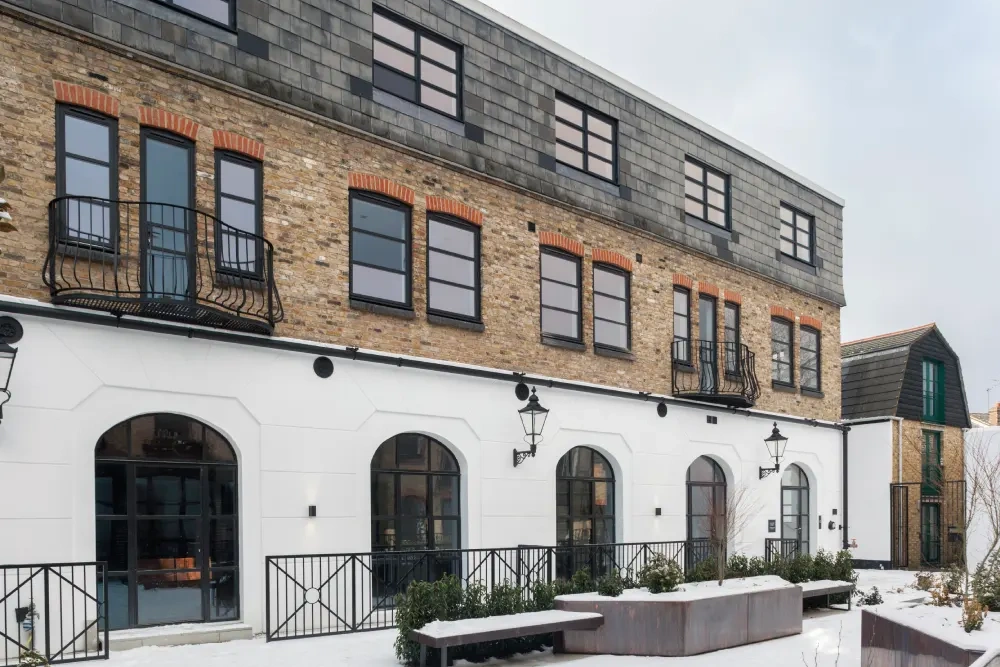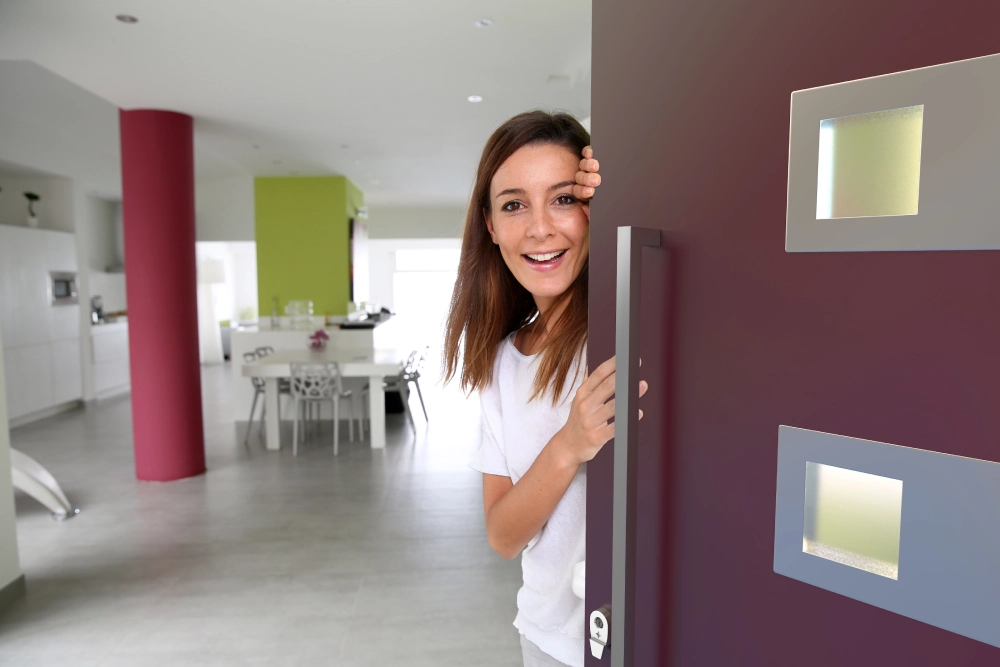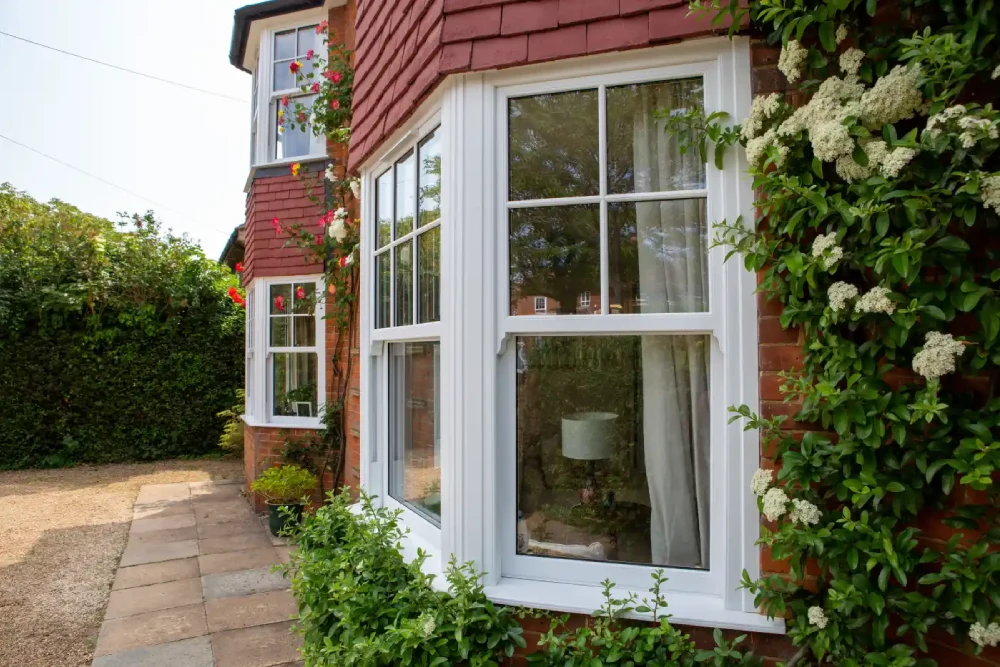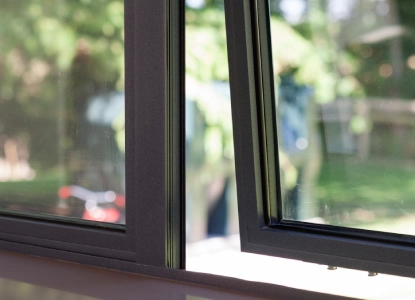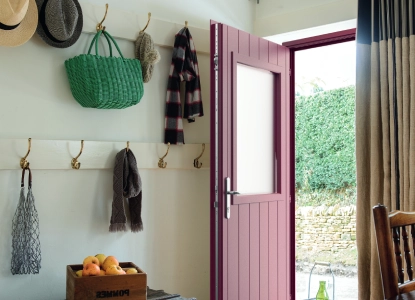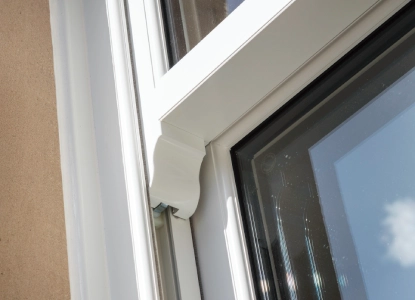Our FAQ page addresses a variety of common questions about doors, windows, and related topics. It provides guidance on installation, costs, materials, adjustments, painting, and maintenance for products like composite doors, French doors, patio doors, and uPVC windows. Topics include how to measure and fit products, choosing materials, and maintenance tips like cleaning or fixing seals.
Doors
How much do French doors cost to install in the UK?
The cost of installing French doors in the UK varies depending on the size, material, and design. At Mercury Glazing, we offer competitive pricing tailored to your specific needs. Please contact us for a personalised quote.
How to fit door handles?
Fitting door handles can be a straightforward process. First, measure and mark the position on the door, drill the necessary holes, then attach the handle with screws. For detailed instructions or professional fitting services, feel free to reach out to us.
How to replace patio doors?
Replacing patio doors involves removing the old doors, preparing the opening, and installing the new doors. It's a task best handled by professionals to ensure a perfect fit and functionality.
How much do patio doors cost?
The cost of patio doors varies based on size, material, and design. Contact us at Mercury Glazing for a bespoke quote that matches your specific requirements.
How much are French doors?
The price of French doors depends on the material, size, and design details. We offer a range of options to suit various budgets. Please get in touch for a tailored quote.
How to measure for French doors?
Measuring for French doors requires precise measurements of the height and width of the door opening. We advise having measurements taken by a professional to ensure accuracy.
How to install sliding doors?
Installing sliding doors involves preparing the opening, fitting the track, and carefully placing the door panels. Due to the precision required we recommend installation by experienced professionals.
How to fit a door frame in a brick wall?
Fitting a door frame in a brick wall requires careful alignment, securing the frame with wall plugs and screws, and ensuring it's perfectly level. We recommend using our professional fitting service for the best results.
How much does a front door cost to replace in the UK?
Replacing a front door in the UK varies in cost based on the type of door and installation requirements. Contact us for a personalised estimate.
How to change a door handle?
Changing a door handle involves removing the old handle, aligning the new one, and securing it with screws. If you need assistance, our team is available to help.
How much is a front door?
The cost of a front door varies based on material, design, and size. We offer a range of options and can provide a custom quote to fit your needs.
How tall is a door frame in the UK?
Standard door frame height in the UK is usually around 1981mm, but we can accommodate different sizes based on your specific needs.
What colour door goes with brown windows?
Choosing a door colour to complement brown windows depends on your personal preference and home's exterior. Neutral colours like white, cream, or even bold contrasts like blue or green can work well.
Windows
How much do double glazed windows cost?
The cost of double glazed windows varies depending on size, style, and material, with average prices ranging from £150 to £600 per window. For a precise quote, please contact us directly.
How much do new windows cost in the UK?
New window costs in the UK can range from £200 to over £700 per window, inclusive of installation, depending on specifications. Reach out for a detailed estimate based on your needs.
How much are double glazed windows?
Double glazed windows typically cost between £150 and £600 per window. Prices can vary based on customisation and installation requirements.
Can you fit triple glazing in double glazing frames?
It is not usually recommended to fit triple glazing in existing double glazing frames as they may not support the additional weight and thickness of the glass.
How to adjust double glazed windows?
Adjusting double glazed windows can involve aligning hinges, locks, or the frame itself. Use the adjustment screws to correct any sticking or misalignment.
How to change window handle?
To change a window handle:
- Remove the screws securing the old handle.
- Align the new handle and secure it with screws.
- Test the handle to ensure smooth operation.
How much to double glaze a house?
The cost to double glaze an entire house can range from £2,000 to £8,000 or more. The total cost depends on the number of windows and doors, as well as the chosen frame materials and glass type.
How to fit a PVC window?
Fitting a PVC window requires precise measurement, securing the frame, ensuring proper insulation and sealing. For best results and adherence to building regulations, professional installation is recommended.
How much does it cost to put a window in a wall in the UK?
Including cutting a new opening and installation, costs can start from around £1,000 to £2,500 per window. Factors such as wall material and window size affect the price.
What is tempered glass?
Tempered glass is safety glass processed by controlled thermal treatments to increase its strength compared with normal glass. Upon impact, it shatters into small granular chunks instead of splintering into jagged shards.
How to get paint off PVC window frames?
To remove paint from PVC frames, gently rub with a non-abrasive cloth and a solvent like white spirit. Always test a small area first.
What is double glazing?
Double glazing consists of two glass panes separated by an air or gas-filled gap to reduce heat loss and noise, providing better insulation than single glazing.
How does double glazing work?
Double glazing works by trapping air between two panes of glass, creating an insulating barrier that reduces heat transfer, noise, and condensation.
Will triple glazing fit in double glazing frames?
Triple glazing generally requires specially designed frames to accommodate the extra thickness and weight of the glass, which standard double glazing frames may not support.
Can double glazing be fitted the wrong way round?
Installing double glazing incorrectly can affect its performance. The panes are designed to face specific directions for optimal insulation and should be installed accordingly.
What type of paint for window frames?
Use weather-resistant paint for exterior frames and a less hardy but more flexible paint for interior frames. Always consider the frame material – specialised paints are available for wood, metal, or uPVC.
How much for new windows and doors?
The cost for new windows and doors varies widely. As a rough estimate, you might expect to pay from £5,000 to £15,000 for a full house. For accurate pricing, please get in touch for a quote.
Does opening windows increase humidity?
Opening windows can increase indoor humidity if the outside air is more humid than the inside air. However, it can also aid in ventilating and reducing excess moisture in your home.
How to fit a double glazed window?
Professional installation is recommended for fitting double glazed windows to ensure they are correctly sealed and comply with building regulations.
Do trickle vents work?
Yes, trickle vents help improve indoor air quality by allowing a small amount of controlled ventilation into the room, reducing condensation and the risk of mould growth.
How to fit trickle vents?
To fit trickle vents:
- Measure and mark the vent position on the window frame.
- Drill holes as per the vent manufacturer’s instructions.
- Secure the vent in place with screws, ensuring a tight seal.
Can you replace double glazing with triple glazing?
Yes, you can replace double glazing with triple glazing, but it may require new frames to accommodate the additional thickness and weight of the glass.
How much value do new windows add to a home in the UK?
New windows can add up to 10% to the value of your home, providing improved energy efficiency and aesthetic appeal.
Do windows need trickle vents?
Trickle vents are not mandatory for all windows, but they are recommended for continuous fresh air flow and are required in some building regulations for new installations.
How long should double glazing last?
Quality double glazing should last between 20 and 35 years. Proper installation and maintenance can extend the lifespan.
How to measure double glazed units?
Measure the height and width between the visible glass seals, and the thickness of the unit by measuring from the outside edge of the frame to the inside edge.
How to fit double glazing?
Fitting double glazing requires technical skill and precision, including removing old windows, preparing the aperture, placing the new unit, and ensuring it is sealed and secure.
How long does it take to order windows?
Typically, it can take 4-8 weeks from order to delivery, depending on the specification and manufacturer.
How much do windows cost?
Costs vary widely based on size, material, and type of window, with prices ranging from £200 to £700 and above per window, including installation.
How do I know if my windows have argon gas?
Argon gas is not visible; however, information about its presence should be available from the manufacturer or installer, usually indicated on the spacer bar or documentation.
How to stop sun coming through windows?
Consider using reflective window films, installing blinds or curtains, or planting external shading like trees to reduce sun glare.
How much new windows cost?
New windows vary in cost, depending on the type, size, and material, generally ranging from £200 to £700 per window.
How much does double glazing cost?
The cost of double glazing depends on the window size and material, ranging from £150 to £600 per window.
How is toughened glass made?
Toughened glass is made by heating regular glass to high temperatures and then rapidly cooling it, resulting in increased strength and safety.
How to remove stains from white PVC?
Gentle cleaning solutions specifically designed for PVC can remove stains. Avoid abrasive materials that could damage the surface. Read our guide to cleaning uPVC Windows here.
Do I need trickle vents?
Depending on the building regulations applicable when the windows were installed or replaced, you might need trickle vents for adequate ventilation.
What is a sash window?
A sash window consists of one or more movable panels, or "sashes", that form a frame to hold panes of glass, which are often separated from other panes by glazing bars. For information on Sash Window Maintenance click here.
How much does triple glazing cost?
Triple glazing costs more than double glazing due to the additional pane of glass, improved energy efficiency, and sound insulation, potentially 30-40% higher.
How to test double glazing?
Check for draughts, condensation between panes, or a noticeable temperature difference to assess the integrity of double glazing.
How much for new windows in the UK?
The cost for new windows in the UK starts around £200 per window and can increase based on size, style, and material.
How much are sash windows?
Sash windows typically cost more than standard casement windows due to their complexity, starting at around £500 per window. For more information on the benefits of sash windows click here.
How long does double glazing windows last?
Double glazed windows usually last around 20 to 35 years, depending on the quality of materials and installation.
How to reduce noise from windows?
Improving seals, installing double or triple glazing, or using thicker curtains can help reduce noise transmission through windows.
How much are new windows and doors?
The cost for a full house can vary greatly, starting from approximately £5,000 and increasing based on factors like size, material, and design.
How much for double glazing?
Double glazing costs typically range from £150 to £600 per window, depending on various factors including the installation.
Are tilt and turn windows more expensive?
Tilt and turn windows can be more expensive than traditional casement windows due to their dual functionality and complex mechanism.
How much is a window?
The price of a window depends on its size, type, material, and glazing options, with prices starting around £200 and going up from there.
EPC Rating
What is an EPC rating?
An EPC rating is a measure of the energy efficiency of a property on a scale of A to G, with A being the most efficient and G the least. It gives homeowners and prospective buyers an indication of how costly the property will be to heat and light.
What is EPC?
EPC stands for Energy Performance Certificate. It's a document that provides a rating of how energy efficient your property is, along with recommendations on how to improve its efficiency.
What are U values?
U values are a measure of how well a building component, like a window or wall, can transfer heat. Lower U values indicate better insulation properties, contributing to greater energy efficiency in a property.
What is an EPC rating?
An EPC rating assesses the energy efficiency of a property, grading it from A (most efficient) to G (least efficient) and providing a numerical score that predicts energy costs.
What is an EPC certificate?
An EPC certificate is a document that outlines the energy efficiency of a property and includes recommendations for improving efficiency and reducing energy costs.
What is PAS?
PAS stands for Publicly Available Specification. In the context of energy efficiency, PAS 2030 and PAS 2035 are standards that set out requirements for the installation of energy-saving measures in buildings.
How to get an EPC certificate?
To obtain an EPC certificate, you'll need to have an accredited energy assessor conduct an energy performance assessment of your property. The assessor will then issue the certificate, which is valid for ten years.
What is a EPC rating?
A EPC rating is an assessment of the energy efficiency of a building, expressed as a rating from A to G, with A being very efficient and G being inefficient.
Is EPC rating C good?
Yes, an EPC rating of C indicates that the property is relatively energy-efficient, with reasonable energy costs. It is above average in the UK, where the median energy efficiency rating is D.
What is EPC rating D?
An EPC rating of D suggests that the property has a moderate level of energy efficiency. It's a common rating in the UK and indicates there are improvements that could be made to enhance efficiency.
How is EPC calculated?
An EPC is calculated based on factors like insulation, heating systems, and lighting. The assessment looks at the energy use and carbon dioxide emissions to provide an overall energy efficiency rating.
How much does an Energy Performance Certificate cost?
The cost of an EPC can vary depending on the size of your property and the assessor you choose. Typically, prices range from £35 to £120. It's best to shop around for quotes from accredited assessors.
How much is an EPC assessment?
The cost of an EPC assessment varies, but it is generally between £35 and £120. The price can depend on the size and location of the property.
What does an EPC check involve?
An EPC check involves an accredited assessor visiting your property to examine key items such as loft insulation, domestic boilers, hot water tanks, radiators, windows for double glazing, and more. The assessor will then calculate the energy efficiency and provide a rating.
Do I need an Energy Performance Certificate?
Yes, if you are selling or renting your property, you are legally required to have a valid EPC to show to prospective buyers or tenants. There are a few exceptions, such as listed buildings, temporary structures, and residential buildings intended to be used less than four months of the year.
UPVC
How long do uPVC windows last?
uPVC windows are designed for longevity and typically last between 20 to 35 years, depending on the quality of the material and installation, as well as maintenance practices.
How to remove a uPVC door?
Removing a uPVC door involves unscrewing the hinges from the door frame, carefully lifting the door out of its position, and detaching any remaining fixtures.
How to replace rubber seal on uPVC door?
To replace a rubber seal, gently prise the old seal away from the groove in the door frame and press the new seal into place, ensuring it's fitted snugly without any kinks or stretches.
How to change a uPVC door lock?
Changing a uPVC door lock usually requires removing the handle and faceplate, then replacing the cylinder or lock mechanism. It's advisable to hire a professional locksmith to ensure security is not compromised.
How to remove uPVC door?
See the response for question 3; the process involves careful detachment of the door from its frame and hinges.
Where should drainage holes be on uPVC door frame?
Drainage holes are typically located at the bottom of the uPVC door frame to allow any water ingress to escape and prevent water damage
How to adjust uPVC windows?
Adjusting uPVC windows may involve aligning the hinges and locks for smooth operation. Use the adjustment screws to correct any misalignment.
Can you drill into uPVC door frame?
Drilling into a uPVC door frame is possible, but it should be done cautiously to avoid damaging the internal structure or voiding any warranty.
How to replace uPVC window hinges?
To replace hinges, remove the window sash, unscrew the old hinges, and screw in the new ones, ensuring they are correctly aligned and the window opens and closes smoothly.
How to fit a uPVC window?
Fitting a uPVC window requires careful measurement, securing the frame in place, ensuring it's level, and then sealing and finishing. This task is best performed by a professional installer.
How to measure uPVC windows?
Measure the width and height from the inside of the window reveal for both the frame and the opening to ensure a snug fit.
How to adjust uPVC windows to stop draughts?
Check the seals and hinges. Adjusting the locking points or replacing worn-out seals can help eliminate draughts.
How to adjust uPVC door to close tighter?
Adjust the hinges or locking mechanism to reduce the gap between the door and the frame, ensuring a tighter seal.
How to adjust uPVC window hinges?
Use the adjustment screws located on the hinges to realign the window sash for proper operation.
Can you paint uPVC frames?
As stated earlier, while you can paint uPVC frames with appropriate paint and primer, it's essential to understand the long-term implications on the material's performance.
How to remove masonry paint from uPVC window frames?
Use a specialised uPVC cleaner or gentle solvent, applying it to a cloth rather than directly onto the frame, and rub carefully to avoid scratching the surface.
How to adjust top hung uPVC windows?
Adjustments can be made to the friction stays and hinges to correct the alignment and operation of top hung uPVC windows.
How to stop draughts from uPVC windows?
Examine and replace any worn seals, and adjust the window's locking mechanism to ensure it closes securely against the weather seals.
How to adjust flag hinges on uPVC door?
Flag hinges on a uPVC door can be adjusted by loosening the screws, realigning the door, and then retightening to secure the position.
How to replace trickle vents in uPVC windows?
Carefully remove the old vent, ensuring the opening is the correct size for the new vent, then install the new vent and secure it in place.
How to repair a hole in uPVC window frame?
A hole in a uPVC window frame can often be repaired with a specialised filler or sealant designed for uPVC. For larger holes, it's advisable to consult a professional.
How to measure uPVC door handles?
Measure the distance from the centre of the handle to the centre of the keyhole, known as the PZ measurement, and the distance between fixing screws.
Can you replace glass in uPVC windows?
Yes, the glass in uPVC windows can be replaced. It's essential to measure accurately and ensure the new glass is the correct type for your frame.
How long does it take to make uPVC windows?
The manufacturing time for uPVC windows can vary, but typically it takes around 4 to 6 weeks from order to delivery.
How to fix a uPVC window?
Fixing a uPVC window depends on the issue. It could involve replacing the glass, repairing the seal, or adjusting the mechanism.
Bifolds
How to Install Bifold Doors Step by Step?
Installing bifold doors is a precise process that requires attention to detail:
- Measure the opening to ensure your bifold doors will fit accurately.
- Secure the track to the top of the frame, ensuring it is level.
- Hang the doors onto the track, adjusting the pivot points for smooth operation.
- Install the hardware, including handles and locks, following the manufacturer's instructions.
- Test the doors to ensure they open and close properly and make any necessary final adjustments.
- For professional installation, please contact our team at Mercury Glazing.
How Much for Bifold Doors?
The cost of bifold doors varies depending on the material, size, and customisation options. At Mercury Glazing, we provide competitive quotes tailored to your specific needs. Please reach out to us for a bespoke estimate.
How Much Do Bifold Doors Cost?
Bifold door prices can range significantly based on factors such as the number of panels, material quality, and glazing options. To get an accurate price for your project, we recommend getting in touch with us for a detailed quote.
Can You Buy Bifold Fire Doors?
Yes, fire-rated bifold doors are available and can be specially ordered to comply with safety regulations. They are designed to provide a barrier against the spread of fire and smoke. For options and availability, our sales team is ready to assist you.
How Are Bifold Doors Supported?
Bifold doors are supported primarily by a track system installed at the top of the door frame. The weight is distributed along the track, which allows the doors to operate smoothly. Some systems also have a guide track at the bottom to stabilise the doors further.
How to Draught Proof Bifold Doors?
To draught-proof bifold doors:
- Ensure that all seals are intact and free of damage.
- Adjust the doors to ensure a tight fit against the seals.
- Consider using draught excluders or brush strips at the bottom of the doors.
- Regularly maintain the tracks and hinges to prevent gaps caused by misalignment.
Fensa
How to Get a FENSA Certificate for My Windows?
To obtain a FENSA certificate for your windows, ensure that the installation is carried out by a FENSA-registered company. Once the installation is complete, the FENSA-registered installer will register your installation with FENSA, who will then issue a certificate to you, confirming compliance with building regulations.
Do I Need a FENSA Certificate for a Front Door?
A FENSA certificate is required for doors with over 50% glazing. If your front door includes this amount of glass, then yes, you need a FENSA certificate to confirm it meets the necessary energy efficiency standards and building regulations.
When Did FENSA Start?
FENSA (the Fenestration Self-Assessment Scheme) was established in 2002, in response to the new building regulations in England and Wales. It aimed to allow companies to self-certify compliance with these regulations for window and door replacements.
Cleaning Maintenance
How to Clean Windows / How to Wash Windows?
For sparkling clean windows:
- Mix a solution of one part distilled vinegar to ten parts warm water.
- Apply the solution with a sponge or spray bottle.
- Wipe the windows with a clean microfiber cloth or squeegee in a Z-pattern for streak-free results.
- Dry the edges and sill with a dry cloth to prevent drips.
How to Clean uPVC Windows?
uPVC windows can be cleaned using a gentle, non-abrasive cleaner:
- Wipe away loose dirt with a soft cloth or sponge.
- Use a specialised uPVC cleaner or a solution of warm water and mild detergent.
- Rinse with clean water and dry with a soft cloth.
How to Clean Chrome Door Handles?
To clean chrome door handles:
- Wipe them with a damp microfiber cloth.
- Apply a mild soap solution if needed, then rinse with water.
- Polish with a dry cloth to restore shine. Avoid abrasive materials that can scratch the chrome.
How to Clean Brown uPVC Window Frames?
For brown uPVC window frames:
- Use a soft cloth and a gentle uPVC cleaner.
- Apply in a circular motion, then wipe off with a damp cloth.
- Avoid using harsh chemicals which can discolour the frames.
What to Use to Clean Windows?
The best cleaning solution for windows is a mix of distilled vinegar and water, or a mild detergent with warm water. Use a microfiber cloth, squeegee, or paper towel for wiping. For more information please read our uPVC window cleaning guide here.
How to Clean Rubber Seals on Double Glazed Windows?
To clean the rubber seals:
- Gently wipe with a clean, damp cloth.
- Use a mild soap solution for any stubborn grime.
- Avoid harsh chemicals and solvents that can degrade the rubber.
How to Clean uPVC Doors?
Clean uPVC doors by:
- Dusting off loose dirt.
- Washing with soapy water (a mild detergent) using a soft cloth.
- Rinsing with clean water and drying with a soft towel.
How Often to Clean Windows?
It's generally recommended to clean windows at least twice a year, but this may vary depending on local environmental conditions.
How to Clean Window Sealant?
Clean window sealant by gently wiping with a damp cloth. If the sealant is mouldy, a small amount of mildew remover or diluted bleach may be used, followed by rinsing.
How to Clean Upstairs Windows from Inside?
To clean upstairs windows from the inside:
- Use a telescopic window cleaner.
- Or, if they're designed to do so, tilt and turn the windows towards you for easy access.
- Clean as you would any other window, using the solutions mentioned above.
Building RegsGeneral
What can you build without planning permission?
In the UK, you can often build certain types of small extensions, conservatories, outbuildings, and loft conversions without planning permission, subject to specific rules and limitations under 'Permitted Development Rights'. It's always best to check with your local planning authority as rules can vary.
How to build a roof extension?
To build a roof extension:
- Obtain planning permission if necessary.
- Have the design assessed by a structural engineer.
- Hire a professional builder or roofing contractor to carry out the work according to building regulations.
How much do foundations cost in the UK?
The cost of foundations in the UK depends on the size of the build and the ground conditions. Prices can range from £75 to £100 per square metre. For an accurate quote, it's advisable to consult with a contractor.
How to seal gap between window and brick wall?
To seal a gap between a window and brick wall:
- Clear any debris and old sealant from the gap.
- Use a foam filler for larger gaps, followed by caulking for a weather-tight seal.
- Smooth the sealant with a caulking tool for a neat finish.
Do I need building regulations for a conservatory with a tiled roof?
Yes, a conservatory with a tiled roof will typically require approval under building regulations to ensure it meets thermal and structural standards.
Do you need planning permission for a conservatory?
You do not usually need planning permission for a conservatory if it falls within certain size limits and criteria for 'Permitted Development'. However, if your conservatory exceeds these limits or is for a listed building or conservation area, you will need to apply for permission.
How long does planning permission last?
In the UK, planning permission is generally granted for three years. You must start the work within this time frame, or the permission will expire.
Can I draw my own plans for building regs?
You can draw your own plans for building regulation approval; however, unless you are experienced in construction design, it is advisable to use a professional to ensure all requirements are met.
Do you need planning permission for a porch?
Small porches that meet certain size requirements can often be added without planning permission under 'Permitted Development Rights'.
Do I need building regulations for a small extension?
Most extensions will require building regulations approval, even if they do not need planning permission, to ensure the safety and performance standards are met.
Do I need planning permission for a conservatory with a tiled roof?
While conservatories often fall under 'Permitted Development', the addition of a tiled roof could mean you need to apply for planning permission due to changes in structure and use.
Do I need building regs for a conservatory?
A conservatory in the UK may be exempt from building regulations if it meets certain criteria, such as being smaller than 30 square metres in floor area. However, the addition of a tiled roof may require compliance with building regulations.
What size extension without planning permission in the UK?
Extensions up to 6 metres for an attached house and 8 metres for a detached house may not require planning permission, provided they meet other 'Permitted Development' criteria.
What size of extension without planning permission?
The size mentioned above, but always confirm with your local planning authority as there can be exceptions, especially in designated areas.
Do orangeries need foundations?
Yes, orangeries need foundations. The type and depth will depend on the ground conditions and the size of the orangery.
Do I need planning permission for an extension?
Planning permission for an extension depends on its size, location, and design. If the extension falls within 'Permitted Development Rights', you may not need it.
Is planning permission needed for a conservatory?
Not typically, as long as the conservatory adheres to 'Permitted Development' guidelines.
How to improve ventilation in house?
Improving ventilation can be done by installing trickle vents, using extractor fans, opening windows regularly, and ensuring a clear path for air to circulate throughout your home.
Condensation
How to Get Rid of Condensation?
To get rid of condensation:
- Increase ventilation by opening windows or installing vents.
- Use a dehumidifier to reduce moisture levels.
- Improve insulation to maintain a consistent internal temperature.
How to Deal with Condensation?
Deal with condensation by:
- Wiping down wet surfaces.
- Utilising extractor fans in kitchens and bathrooms.
- Avoiding drying clothes indoors when possible.
How to Stop Condensation on Windows?
To stop condensation on windows:
- Use a dehumidifier.
- Ensure proper ventilation.
- Install thermal or insulated curtains.
- Apply anti-condensation paint or film.
How to Stop Condensation on Bedroom Walls?
For bedroom walls:
- Maintain a warmer room temperature.
- Increase air circulation with fans or air movers.
- Insulate the walls to reduce cold surfaces.
Is Condensation on Windows Bad?
Condensation on windows isn't inherently bad, but persistent condensation can lead to mould growth and damage to window frames and sills.
What Causes Condensation on the Inside of Windows?
Condensation on the inside of windows is caused by excess humidity in the home meeting cooler surface temperatures on the window glass.
How to Stop Condensation on Windows in Winter?
Stopping condensation on windows in winter involves a combination of reducing indoor humidity, improving ventilation, and maintaining a consistent indoor temperature.
How to Stop Windows Steaming Up?
During winter:
- Keep room temperatures consistent.
- Use thermal curtains at night.
- Maintain low humidity levels with a dehumidifier.
- To prevent windows from steaming up:
- Ventilate the room, especially during cooking or bathing.
- Use a dehumidifier.
- Apply anti-fog treatments to the glass.
What Causes Condensation on Walls?
Condensation on walls is typically caused by high humidity and poor ventilation, especially where warm, moist air contacts colder wall surfaces.
How to Stop Windows Steaming Up at Night?
To stop windows from steaming up at night, crack open a window slightly or use a dehumidifier to reduce the indoor humidity.
How to Stop Condensation in Bedroom?
In bedrooms, ensure adequate ventilation, use a dehumidifier, and avoid activities that increase humidity, such as drying clothes on radiators.
How to Get Rid of Condensation Inside Windows?
If condensation is between the panes, this may indicate a failed seal in double glazing, which often requires professional repair or replacement.
How Can I Stop Condensation on My Windows?
Alongside using dehumidifiers and ventilation, consider investing in double glazing or secondary glazing to increase the surface temperature of the glass.
How to Clear Misted Double Glazed Windows?
Misted double glazed windows usually mean a seal has failed, and the unit may need replacing. A professional can assess if repair is possible.
How to Deal with Condensation on Windows?
Consistent room temperatures, proper ventilation, and moisture control are key strategies for dealing with window condensation.
Does Double Glazing Stop Condensation?
Double glazing can help prevent condensation by reducing temperature differences between the interior glass surface and the indoor air.
What Causes Condensation on Windows?
Indoor activities like cooking, showering, and drying clothes can increase humidity, leading to condensation when warm air meets colder window surfaces.
How to Remove Condensation from Windows?
Wipe down wet surfaces, use a dehumidifier, and ensure good air circulation to remove condensation from windows.
How to Prevent Mould on Windows?
Prevent mould by controlling condensation, regularly cleaning window frames and seals, and ensuring good ventilation around the windows. Read our full guide to prevent mould build up here.
How to Stop Condensation?
Reduce indoor humidity, improve insulation, and maintain a constant temperature to stop condensation.
Will New Double Glazing Stop Condensation?
New, properly installed double glazing can reduce the risk of condensation by providing better thermal insulation.
What Causes Condensation on Outside of Double Glazed Windows?
Condensation on the outside of double glazed windows occurs when the external pane temperature drops below the outdoor dew point temperature, usually a sign of effective insulation.

